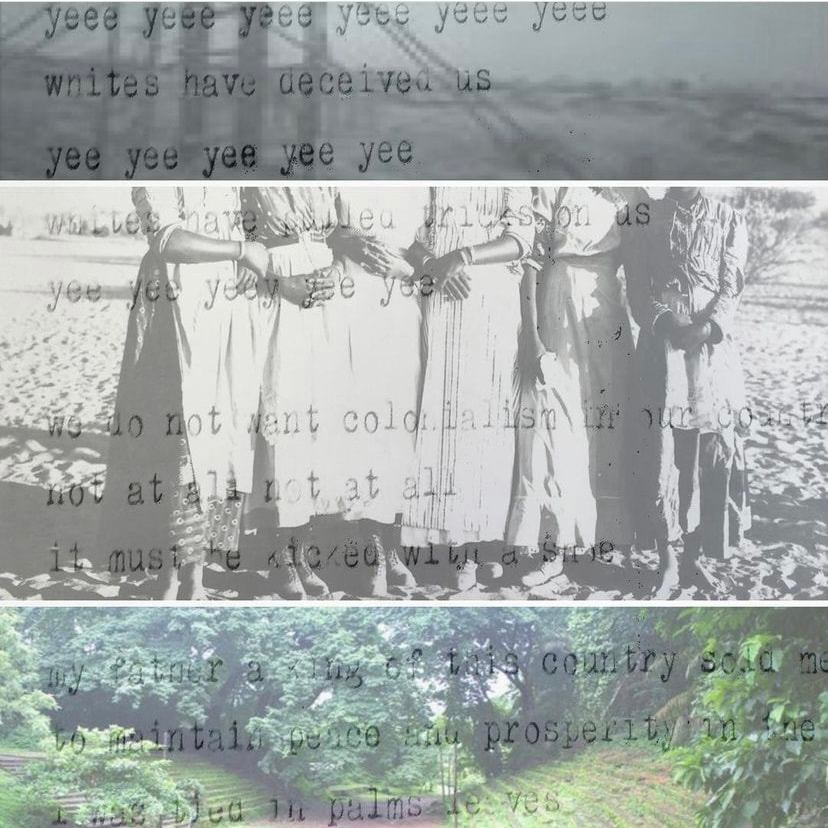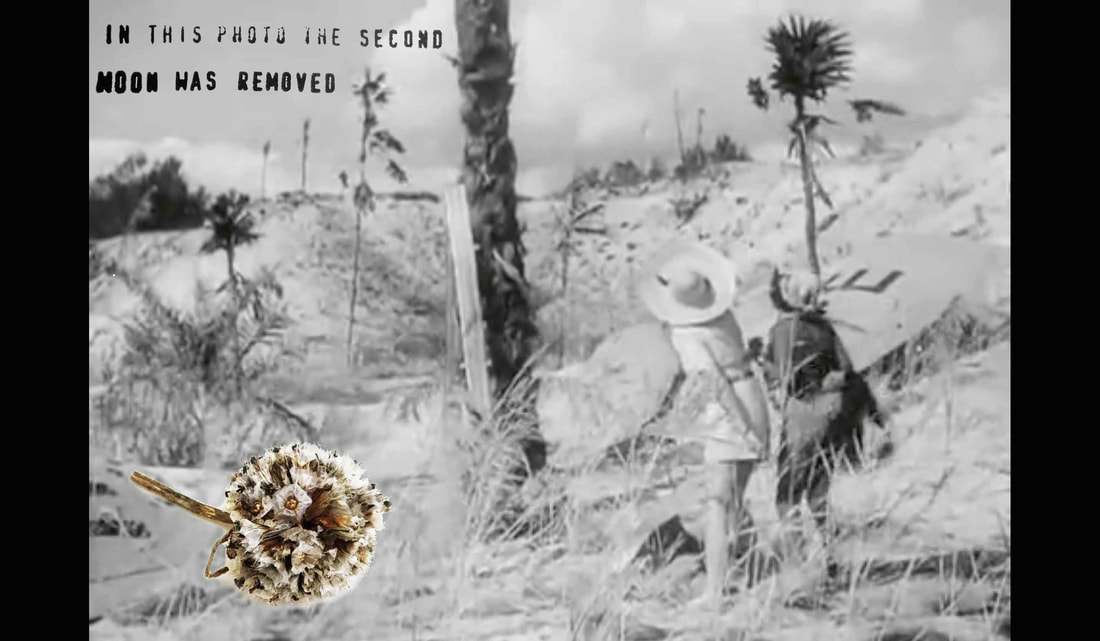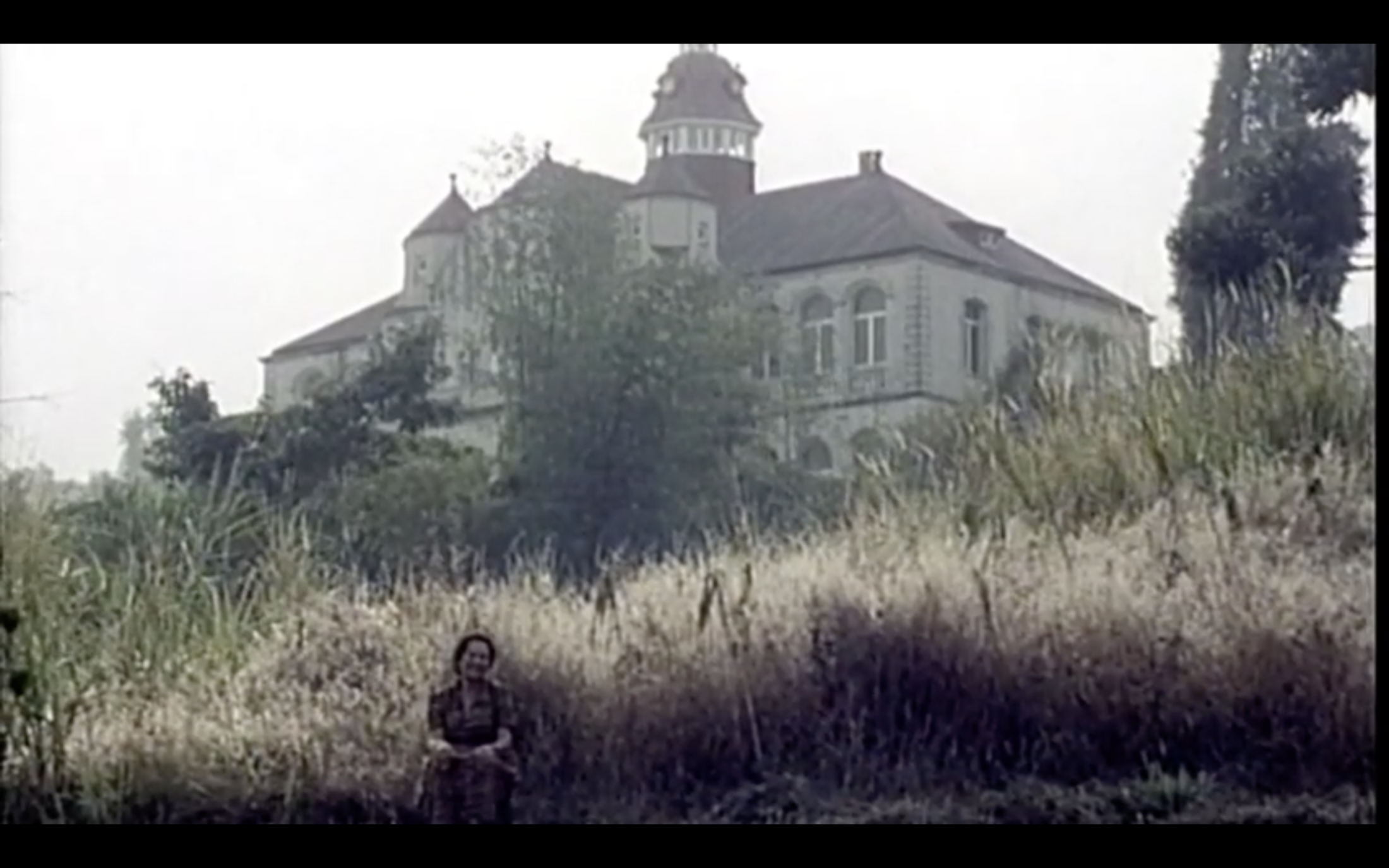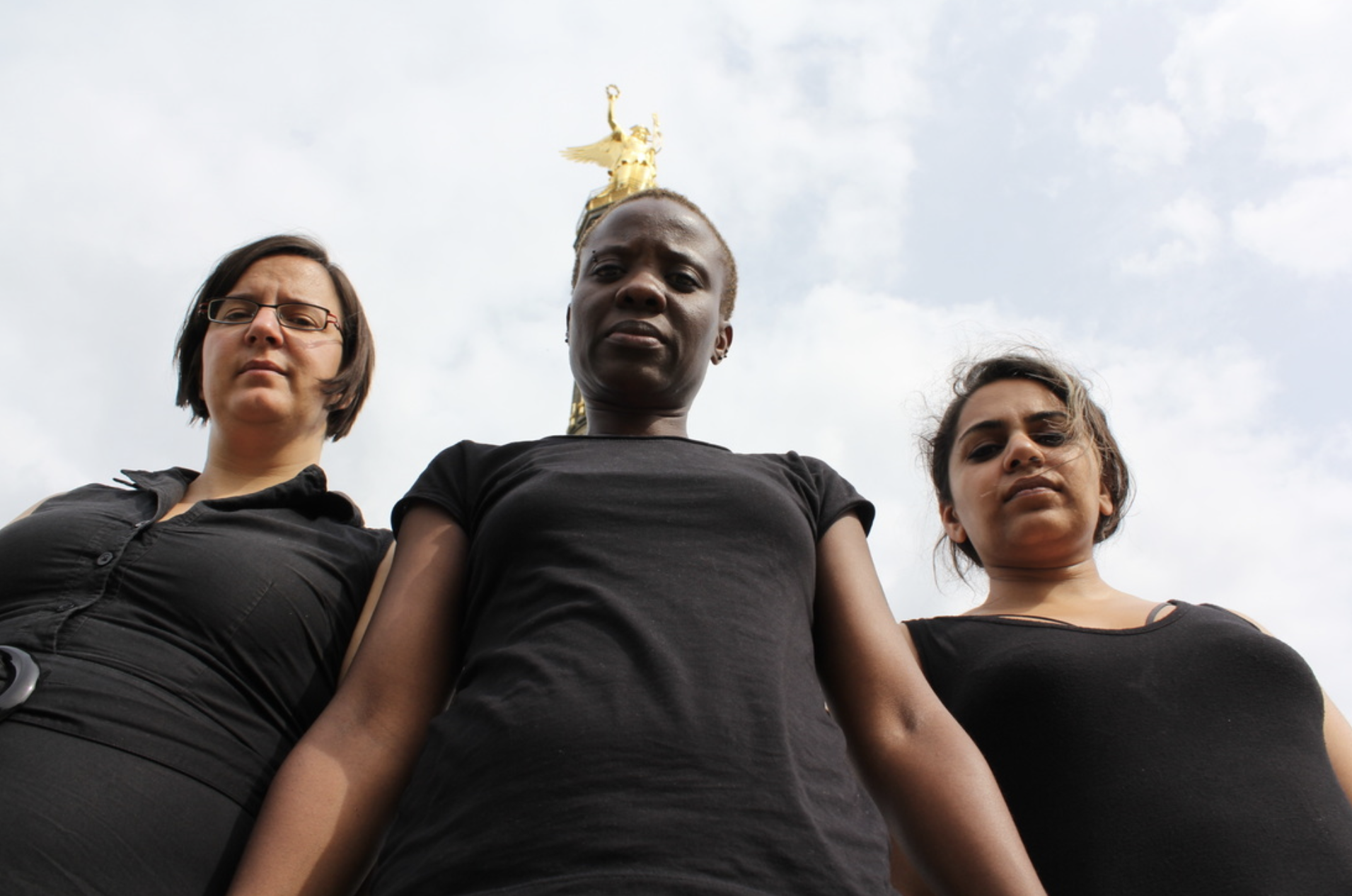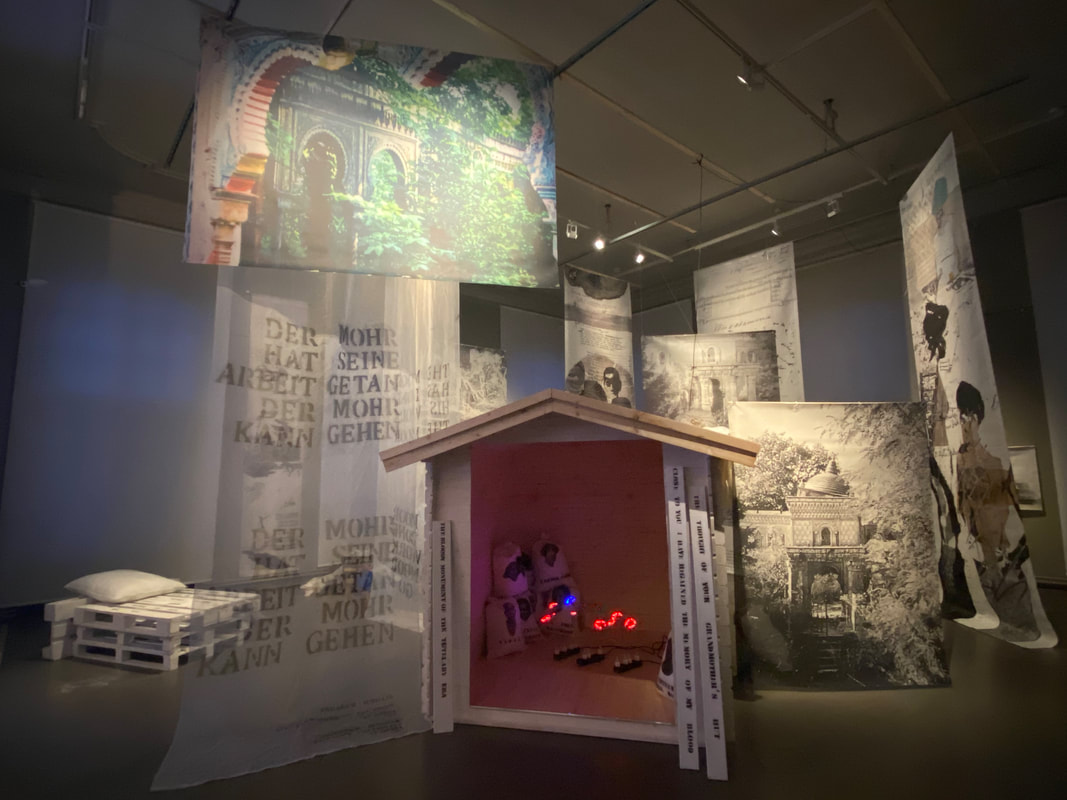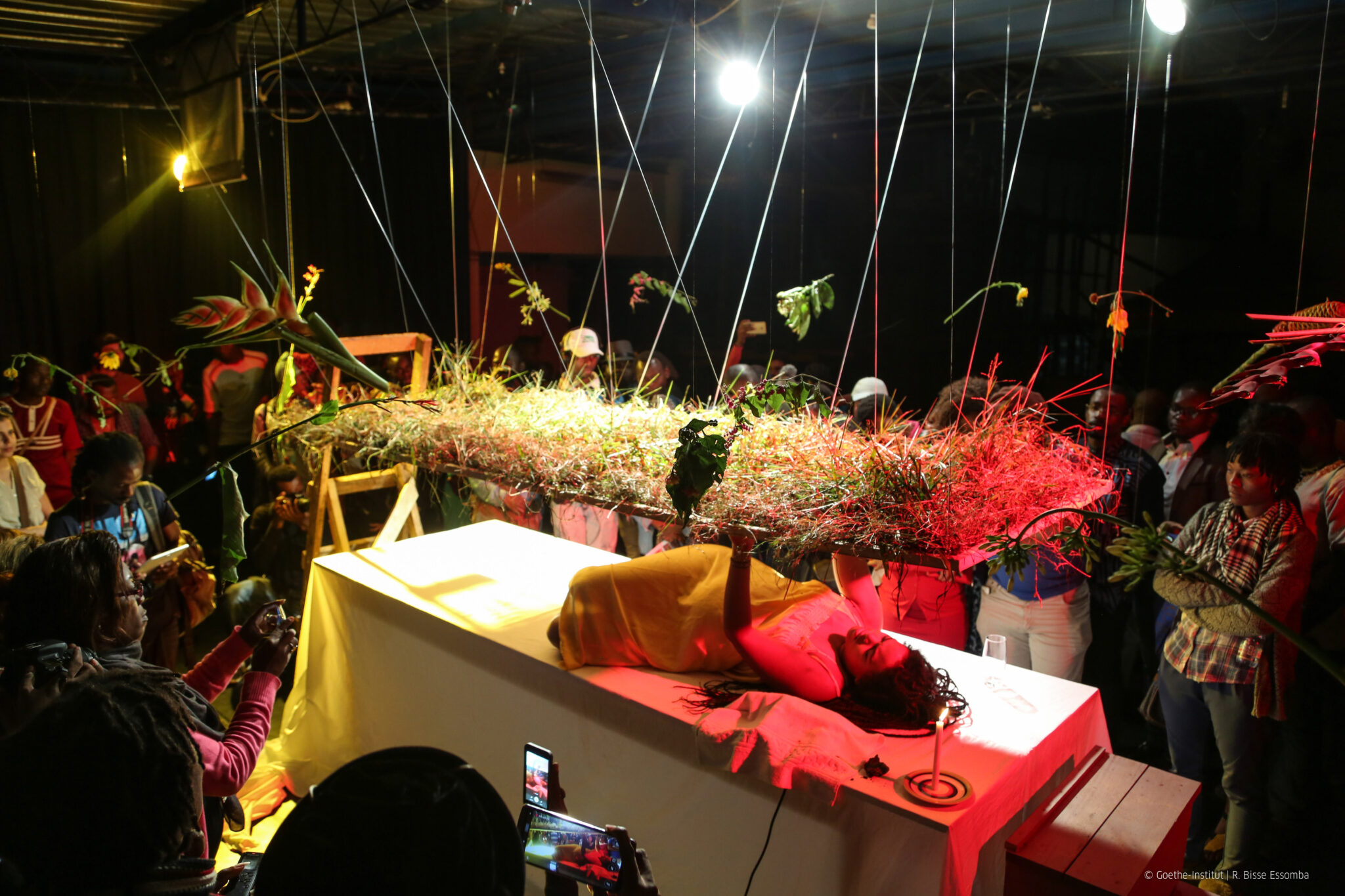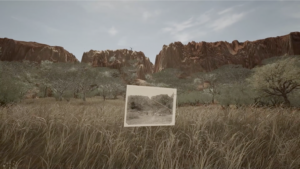Nathalie Anguezomo Mba Bikoro
Nkombo! Sonnenaufgang im Morgenland: Thieves of Echoe, Archiving Film and Reparation in Black Feminist Revolt
Nkombo! is to strongly object given knowledge, it is the hour of reckoning when truth is spoken by communities to change the course of historical narratives through imagination and restoration. It was coined in Trinidadian botanics and food where the space of the kitchen, of working women, became that of resistance, smuggling, militancy, Afrofuturisms and healing. They appeared in archival testimonial records of forced Black migrations in gathering spaces like Congo Square in Louisiana, a space for market, music, dance and resistance, marked by migration and uprisings of the Haitian Revolution. This legacy was later embroiled in the decision-making of colonial trade and the partition of resources in Berlin’s Congo Conference (1884-85) and contrastingly, it became the source for Black queer writers like Claude McKay and Alain Locke in forging the Harlem Renaissance.
Through intersectional practices of performance and sonic encounters, these narratives of Nkombo! commemorate lesser known stories through traces of science-fictional and botanical stories tied to urban migration, human trafficking, anti-colonial revolutions and erasures of events that have shaped the understories’ routes between 1914-1942. From New Orleans’ Congo Square leading to Berlin’s Congo Conference; the folklore tales of Zora Neale Hurston and the impact on botanic memory in Cameroon; Black Feminism and sonic smuggling in colonial film productions during the Weimar Republic; the codes embedded in quilts from Gee’s Bend during the Underground Railroad shaping modern Bauhaus design. Central to this practice are Black feminist anti-colonial revolts in archive film and sound technologies that challenge positions on restitution and reparation. It considers the role of futurist Black queer literature and African botanical technologies as methods of decolonial healing by Black feminists, and radio piracy in 1930’s Germany as linked to Amílcar Cabral’s strategies of rebellion, agricultural intelligence and cultural revolution. This interdisciplinary research works at the cross sections of queer mobility, Black ritual and colonial archives with archeological urban ruinations and performance that reveal stories on law, migration and botany.
Nathalie Anguezomo Mba Bikoro’s work analyses processes of power and science fictions in historical archives that critically engage in migrational struggles and colonial memory, focusing on queer indigenous and Black feminist biopolitics central to the practice of ancestral healing. The artist creates immersive performative environments for alternative narratives and future speculations of colonial resistance movements led by African women of the German diaspora and indigenous communities. Sedimented in narratives of testimonial Black queer experiences of sonic nature archives, revolt, queering ecologies and postcolonial feminist experiences towards new monuments which reacts to the different tones of societies shared between delusions and ritual. The work offers complex non-binary readings pushing new investigations about the architectures of racisms in cities, the archeologies of urban spaces and economies of traditional systems by exposing the limitations of technologies as functional memory records. Anguezomo has developed frameworks of rituals and healing in performance work that often reveal the entangled colonial histories of migration at site-specific spaces to dismantle prejudices and organise accessible levels of consciousness through testimonial archives of local communities and to build independent emancipatory tools for liberation, education, consciousness, intimacy and healing. Anguezomo is artistic director of Squat Museum in Gabon (2008), a mobile museum and performing archive, and Nyabinghi_Lab Collective (2020; non-profit), recently curating the performance programme Radical Mutations at Hebbel Am Ufer theatre, Z/KU & Kunstraum Bethanien Berlin, with “Free State of Barackia: Landscapes of Liberation”. Anguezomo’s work was recently featured in the ARTE Twists episode “Our Colonial Heritage” and on Deutsche Welle as part of a series of short films on German colonialism and Black resistance. Anguezomo’s work has been shown in numerous international exhibitions and Biennales including the Dak’art Biennale (2012, 2018), Dakar, the Venice Biennale (2016), La Otra Bienal, Bogota (2013), and the RAVY Performance Biennale, Yaoundé (2018), among others.
